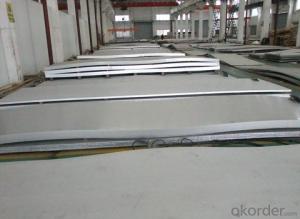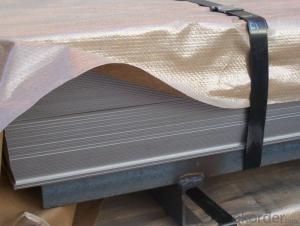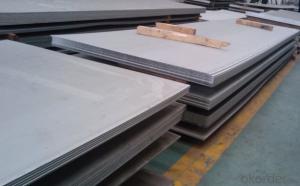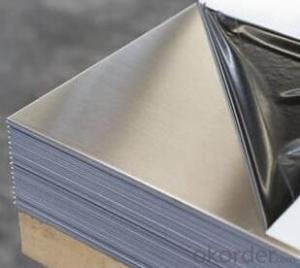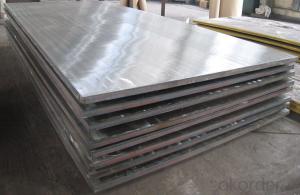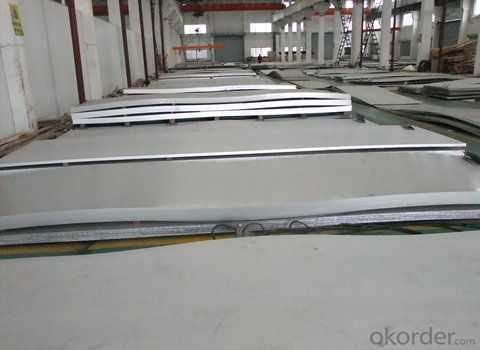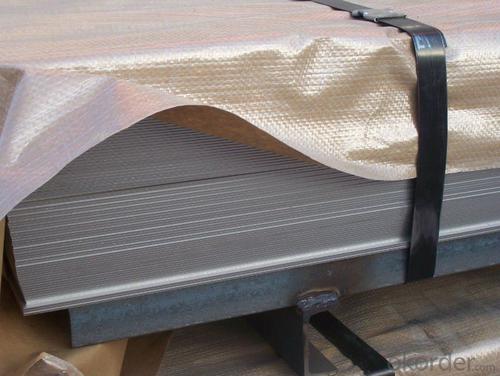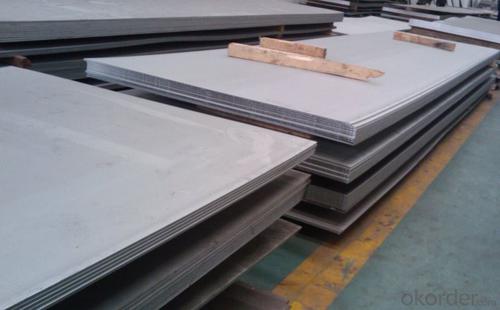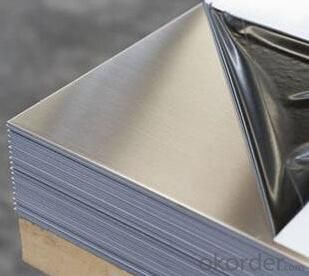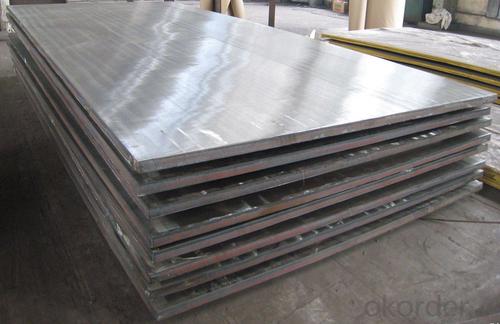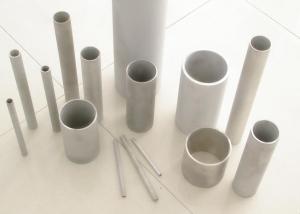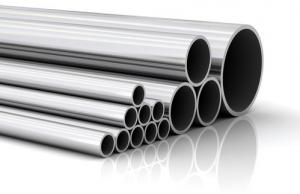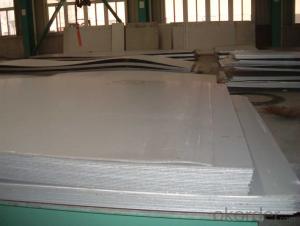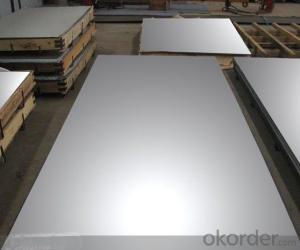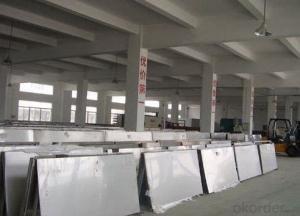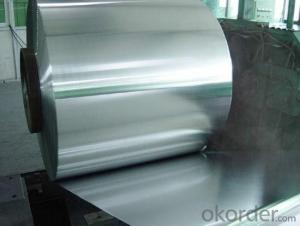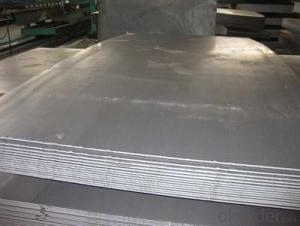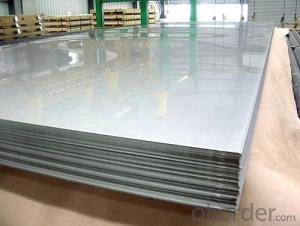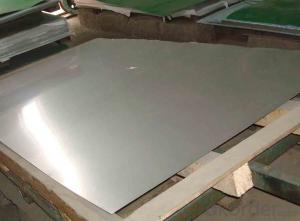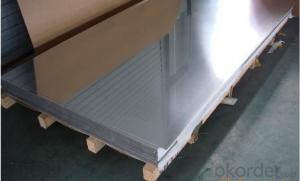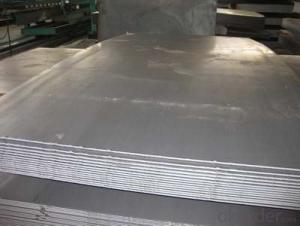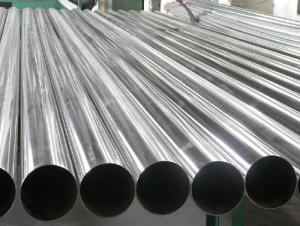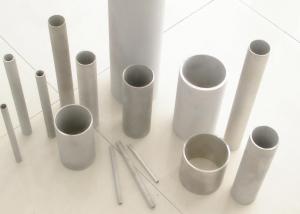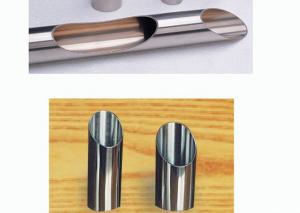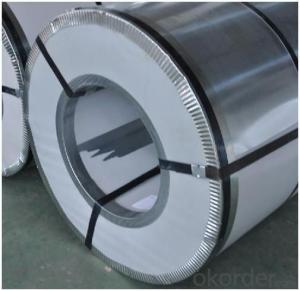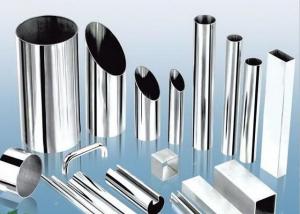Stainless Steel plate 202 with No.4 Surface Treatment
- Loading Port:
- Shanghai
- Payment Terms:
- TT OR LC
- Min Order Qty:
- 500 m.t.
- Supply Capability:
- 5000000 m.t./month
OKorder Service Pledge
OKorder Financial Service
You Might Also Like
Hot sale stainless steel sheet 201/202/304/304l/310S/309S/316L/316Ti/316/321,410/420/430/444/443/409L, and 904L.
Description of Stainless Steel Sheet:
Description | steel sheet,hot rolled steel sheet,cold rolled steel sheet, steel sheet,sheet,steel plate |
Standard | ASME, ASTM, EN ,BS,GB,DIN, JIS etc |
Application | Steel sheet applies to construction field, ships building industry, petroleum & chemical industries, war and electricity industries, food processing and medical industry, boiler heat exchanger, machinery and hardware fields. |
Packaging | Standard export sea-worthy packing |
Delivery time | 10-30 days |
Quality | No.1 |
Productivity | 500 tons/Day |
Note | Our company has cooperative relation between the domestic agents. Stainless steel sheet can be made accordingto the customers requirements. Fasten delivery. Quality assured. |
Contacts | If you have any question,please feel free contact me. |
Stainless steel sheet surface finish characteristics
Surface finish | Characteristics and application |
2B | The surface brightness and flatness of no2B is better than no2D. then through a special surface treatment to improve its mechanical properties,No2B could nearly satisfy comprehensive uses. |
No.1 | Polished with abrasive belt of grit#100-#200, have better brightness with discontinuous coarse stria, used as inner and external ornaments for building, electrical appliances and kitchen utensils etc. |
No.4 | Polished with abrasive belt of grit #150-#180,have better brightness with discontinuous coarse stria, but thinner than No3, are used as bathtub buildings inner and external ornaments electrical appliances kitchen utensils and food processing equipment etc. |
HL | Polished with abrasive belt of grit #150-#320 on the NO.4 finish and has continuous streaks, mainly used as buildings ornaments elevators, door of building, frontal plate etc. |
BA | Cold rolled, bright annealed and skin-passed, the product have excellent brightness and good reflexivity like mirror, kitchen apparatus, ornament etc. |
8K | The product have excellent brightness and prefer reflexivity can to be the mirror. |
Main Features of stainless steel sheet :
•Escalator, Elevator, Doors
•Furniture
•Production tools, Kitchen appliances, freezers, cold rooms
•Auto Parts
•Machinery and Packaging
•Equipment and Medical devices
•Transport system
Product Details:
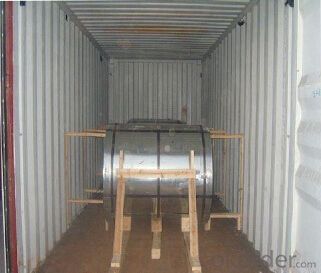
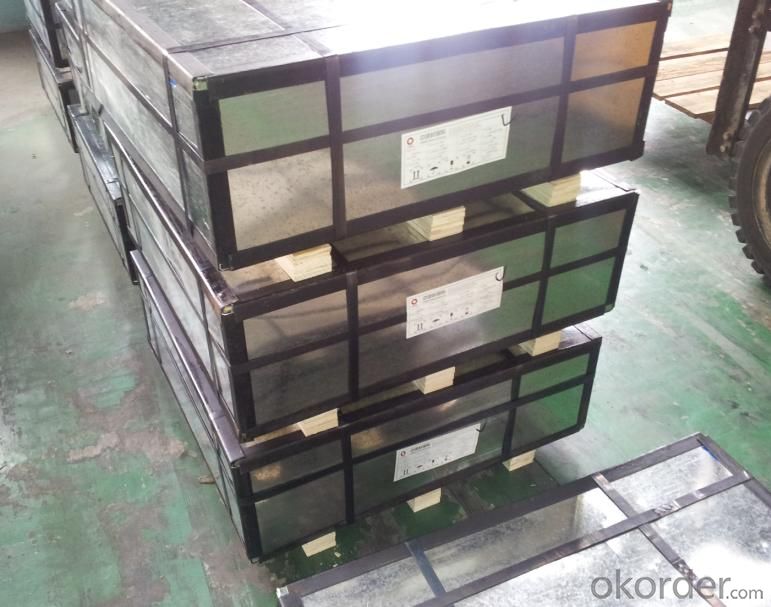
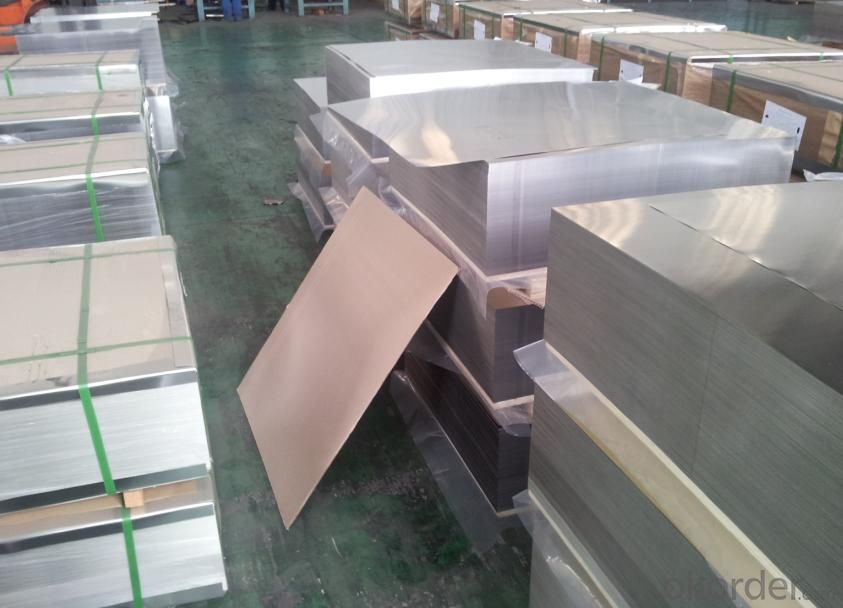
Sandard Seaworth Packing(wooden packing with water proof paper)
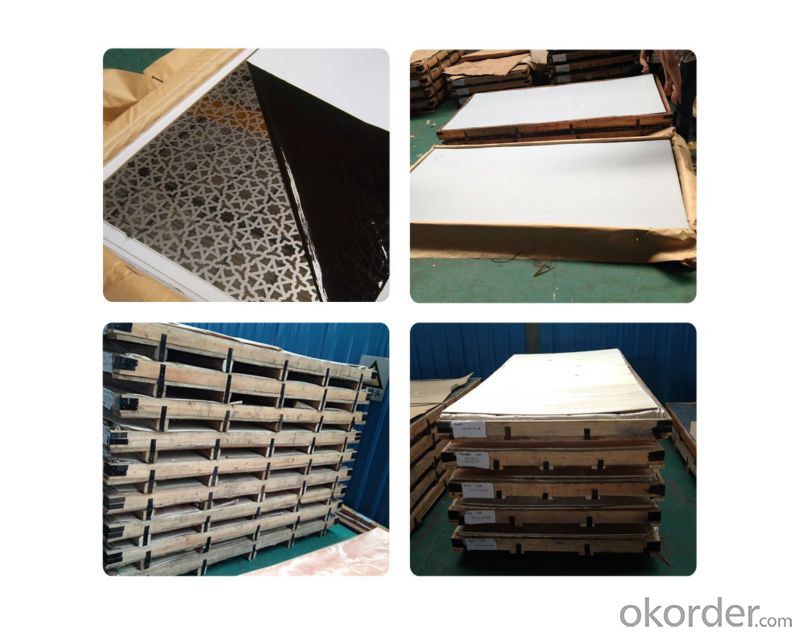
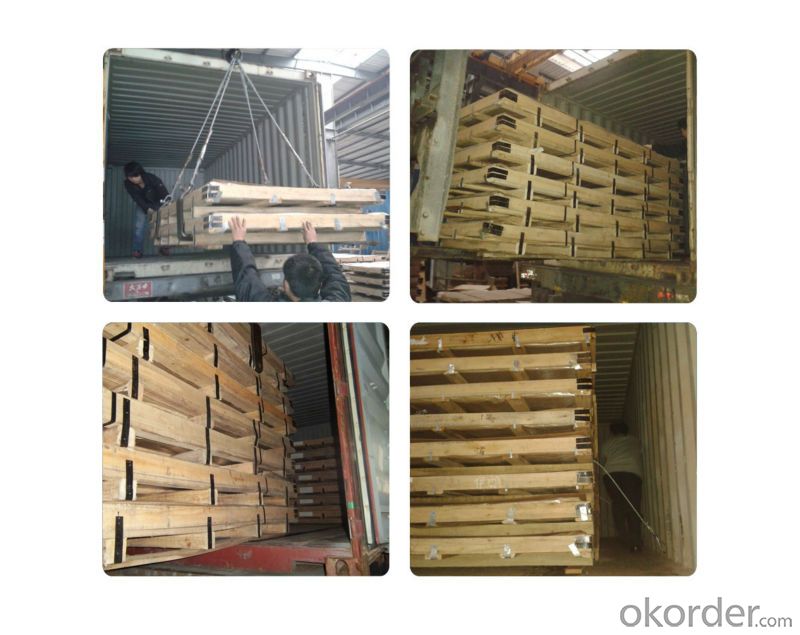
FAQ:
1. What's the quality?
very fine
2. How long get reply?
within 24 hours
If you have any question about stainless steel sheets,donot forget to sending the email to Us! You will get the competitive Price and have a very good experience about the Buying Process! CNBM International Corporation is always your trustful friend!
- Q: Can the tile be directly attached to the stainless steel plate?
- Can be posted directly, with ordinary acid glass glue on the line, the real stainless acid, acid, glass, adhesive force a little stronger.
- Q: Are stainless steel sheets suitable for industrial applications?
- Stainless steel sheets are perfect for industrial use due to their high suitability. This material is incredibly durable and versatile, providing numerous advantages in industrial settings. Firstly, stainless steel possesses a remarkable resistance to corrosion, making it the ideal choice for industries exposed to moisture, chemicals, or corrosive substances. Moreover, it maintains its strength and structural integrity when subjected to extreme temperatures, whether high or low. In addition, stainless steel boasts exceptional hygienic properties, making it highly suitable for industries like food processing, pharmaceuticals, and medical equipment. Furthermore, stainless steel sheets are renowned for their outstanding strength-to-weight ratio, making them perfect for structural applications in industries such as construction, automotive, and aerospace. They can be easily formed, welded, and fabricated to meet specific requirements. Overall, stainless steel sheets combine strength, durability, corrosion resistance, and versatility, rendering them highly appropriate for a wide range of industrial applications.
- Q: What are stainless steel sheets used for?
- Stainless steel sheets serve a multitude of purposes in diverse industries. Their outstanding resistance to corrosion, durability, and attractive appearance make them highly sought after in both commercial and residential settings. Within the construction field, these sheets are utilized for roofing, cladding, and facades due to their ability to withstand harsh environmental conditions while providing a contemporary and sleek look. In the automotive industry, they are frequently employed in the construction of car bodies, exhaust systems, and decorative trims. Furthermore, stainless steel sheets find extensive use in the food and beverage sector, where their hygienic qualities make them ideal for kitchen equipment, countertops, and food processing machinery. Additionally, they are widely used in medical equipment, pharmaceuticals, and laboratory settings due to their resistance to corrosion and ease of cleaning. They are also employed in furniture, appliances, signage, and for decorative purposes, as they can be easily customized and molded into various shapes and sizes. All in all, stainless steel sheets are an adaptable material that fulfills a diverse array of requirements in different industries, owing to their strength, durability, and corrosion resistance properties.
- Q: How do you remove stains or marks from stainless steel sheets?
- To effectively eliminate stains or marks from stainless steel sheets, follow these step-by-step instructions: 1. Begin by identifying the specific type of stain or mark present on the stainless steel sheet. Common examples include water spots, fingerprints, grease, or rust. 2. For general cleaning purposes, utilize a soft cloth or sponge soaked in warm water and mild dish soap. Gently wipe the stainless steel surface, ensuring to follow the grain to prevent scratching. Thoroughly rinse with clean water and dry using a soft cloth. 3. To tackle more stubborn stains or marks, create a paste by combining baking soda and water. Apply the paste to the affected area and gently rub it in using a soft cloth or sponge. Rinse off the paste with warm water and dry using a soft cloth. 4. For persistent grease stains, concoct a mixture of vinegar and water. Apply the vinegar solution to the stain and allow it to sit for a few minutes. Tenderly scrub the area with a soft cloth or sponge, following the grain of the stainless steel. Rinse thoroughly with clean water and dry. 5. In the case of rust stains, employ a mixture of lemon juice and cream of tartar. Apply the mixture to the stain and let it sit for a few minutes. Gently scrub the area with a soft cloth or sponge, following the grain. Rinse thoroughly with clean water and dry. 6. If stubborn stains persist despite the previous methods, resort to a stainless steel cleaner specifically designed for stain and mark removal. Adhere to the instructions provided with the cleaner and ensure thorough rinsing and drying of the surface afterward. Always remember to test any cleaning solution or method on a small, inconspicuous area of the stainless steel sheet before applying it to the entire surface. Additionally, refrain from using abrasive cleaners or scrubbing pads as they can cause scratches on the stainless steel.
- Q: What are the different sizes available for stainless steel sheets?
- Stainless steel sheets are available in a wide range of sizes to cater to various applications and requirements. The most common sizes for stainless steel sheets are typically 4 feet by 8 feet (1219mm x 2438mm) and 4 feet by 10 feet (1219mm x 3048mm). These sizes are widely used in construction, architecture, and industrial settings. However, stainless steel sheets are also available in smaller sizes, such as 2 feet by 4 feet (609mm x 1219mm) or even smaller, which are commonly used for DIY projects, hobbyists, and smaller-scale applications. On the other hand, larger sizes of stainless steel sheets are also available for specific purposes. These can include sheets measuring up to 5 feet by 10 feet (1524mm x 3048mm) or even larger, which are often used in specialized industries like shipbuilding, oil and gas, or manufacturing. It is important to note that the thickness of stainless steel sheets can vary independently of their size, as different applications may require different thicknesses. Common thicknesses range from 0.025 inches (0.64mm) to 0.1875 inches (4.76mm) or even thicker for specialized applications. Overall, the availability of stainless steel sheets in various sizes allows for flexibility and customization according to the specific needs of a project, whether it be a small DIY endeavor or a large-scale industrial application.
- Q: Who knows the production process of stainless steel plate?
- The process of stainless steel: if annealed stainless steel should be used to have NG-9-1 chemical black oil by NZ-B in electrolytic oil washing, polishing, degreasing Wang (the fluid as the coolant used directly, temperature 60 to 80 DEG C, the workpiece hanging the anode current of Da:20 ~ 15A/dm2, the cathode lead - antimony alloy (with sb 8%) time: 1 ~ 10 minutes), washing, polishing until 5 ~ 8% hydrochloric acid stripping (room temperature: 1 ~ 3 seconds), water washing and drying.Note: aluminum or titanium for fixture requires good electrical conductivity. The new solution is electrically treated before aging.
- Q: How many steps do I need for stamping the stainless steel plate?
- The shape of the product determines how many processes are required. Even the simplest needs 1 processes, and the complex may take 7-8 steps to complete.
- Q: How do you prevent pitting or crevice corrosion on stainless steel sheets?
- To prevent pitting or crevice corrosion on stainless steel sheets, there are several measures that can be taken: 1. Proper alloy selection: Choosing the right grade of stainless steel is crucial. Grades with higher levels of chromium, molybdenum, and nickel provide better resistance to corrosion. 2. Surface finishing: Ensuring a smooth and clean surface is essential to prevent corrosion. Rough surfaces or scratches can act as initiation sites for corrosion. Polishing or electropolishing the stainless steel sheets can help create a smoother surface. 3. Regular cleaning and maintenance: Regular cleaning using mild detergents and non-abrasive cleaners is important to remove contaminants that may corrode the stainless steel sheets. It is also necessary to avoid using chlorine-based cleaners or abrasive materials that can damage the protective oxide layer. 4. Avoiding stagnant conditions: Pitting and crevice corrosion are often intensified in stagnant environments. Ensuring proper drainage and avoiding the accumulation of stagnant water or debris can help prevent this type of corrosion. 5. Control of environmental factors: Stainless steel sheets should be protected from exposure to aggressive chemicals, such as chloride-containing solutions or acidic substances. Proper ventilation and humidity control can also help reduce the risk of corrosion. 6. Use of protective coatings: Applying protective coatings, such as paints or passivation treatments, can provide an additional layer of protection against pitting and crevice corrosion. 7. Regular inspections: Conducting regular inspections to detect any signs of corrosion early on can help prevent further damage. Prompt remedial actions, such as repairing damaged coatings or addressing any drainage issues, can prevent the spread of corrosion. By following these preventive measures, the risk of pitting or crevice corrosion on stainless steel sheets can be significantly reduced, ensuring their longevity and maintaining their aesthetic appeal.
- Q: What is the strength of stainless steel sheets?
- The strength of stainless steel sheets is one of its key advantages, as it possesses high tensile strength and can withstand heavy loads and impacts without easily deforming or breaking.
- Q: What are the advantages of using stainless steel sheets in the aerospace industry?
- Using stainless steel sheets in the aerospace industry has several advantages. Firstly, stainless steel is renowned for its remarkable strength and durability. It can endure high temperatures and extreme conditions, making it perfect for aircraft components that require superior performance and long lifespan. This strength allows stainless steel sheets to resist corrosion, which is crucial in an industry where safety is paramount. Secondly, stainless steel sheets offer excellent resistance to impact and fatigue. This is particularly important in the aerospace sector, where components are constantly subjected to vibrations and stress. Stainless steel can absorb these forces without compromising its structural integrity, ensuring the safety and reliability of the aircraft. Thirdly, stainless steel sheets possess a high strength-to-weight ratio, making them lightweight yet strong. This is essential in aviation, where reducing weight is a primary concern for fuel efficiency and overall performance. By utilizing stainless steel sheets, aircraft manufacturers can achieve the desired strength without adding unnecessary weight, leading to improved fuel economy and increased payload capacity. Furthermore, stainless steel sheets are highly versatile. They can be easily formed, welded, and machined into intricate shapes and sizes, allowing for the production of complex aerospace components. This versatility enables engineers to design and manufacture innovative aircraft parts, resulting in improved aerodynamics, reduced drag, and enhanced overall performance. Lastly, stainless steel sheets exhibit excellent heat resistance properties. They can endure high temperatures without losing their strength or shape, making them ideal for applications that involve exposure to extreme heat, such as jet engines or exhaust systems. This heat resistance ensures the longevity and reliability of these critical components, contributing to the overall safety and efficiency of aircraft. In conclusion, the advantages of using stainless steel sheets in the aerospace industry include exceptional strength and durability, resistance to impact and fatigue, high strength-to-weight ratio, versatility in manufacturing complex components, and excellent heat resistance properties. These qualities make stainless steel sheets an optimal choice for aircraft manufacturers, guaranteeing the safety, reliability, and efficiency of aerospace vehicles.
Send your message to us
Stainless Steel plate 202 with No.4 Surface Treatment
- Loading Port:
- Shanghai
- Payment Terms:
- TT OR LC
- Min Order Qty:
- 500 m.t.
- Supply Capability:
- 5000000 m.t./month
OKorder Service Pledge
OKorder Financial Service
Similar products
Hot products
Hot Searches
Related keywords
